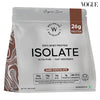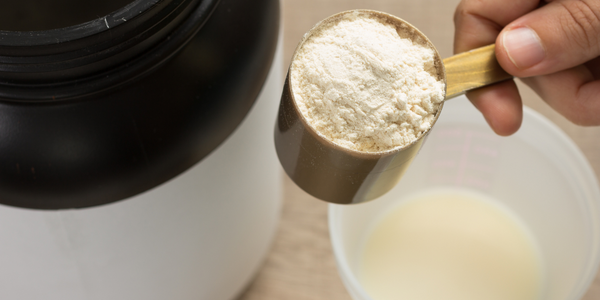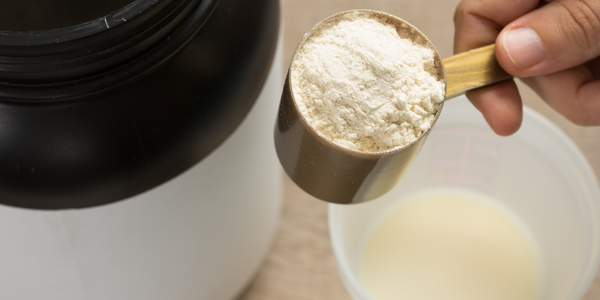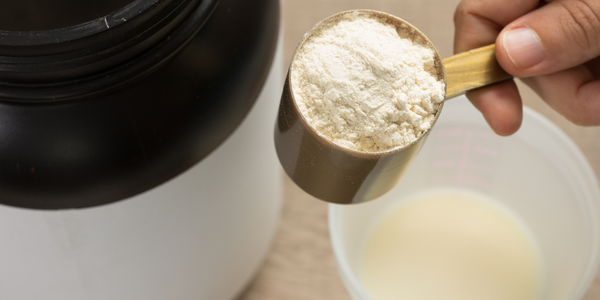Whey protein has long been the gold standard for fitness enthusiasts, athletes, and wellness seekers. But beyond its reputation as a muscle-building essential, whey protein harbors a wealth of benefits that often go unnoticed. From its impact on digestion and metabolism to its role in blood sugar regulation, this nutritional powerhouse is more than just a post-workout staple. Let’s uncover some fascinating facts about whey protein that might just change the way you view your protein shake.
1. Not All Whey Protein is Created Equal
One of the most overlooked facts about whey protein is the misconception that all forms offer the same benefits. Whey protein comes in three primary types—whey protein isolate, whey protein concentrate, and whey protein blend—each catering to different needs.
-
Whey Protein Isolate undergoes an advanced filtration process to remove excess fat and lactose, delivering a higher protein content per serving. This makes it ideal for those with lactose sensitivities or individuals seeking a lean protein source.
-
Whey Protein Concentrate retains more of its natural bioactive compounds, including immune-supporting peptides and beneficial fats, offering a more balanced nutritional profile.
-
Whey Protein Blends strategically combine both isolate and concentrate, providing the best of both worlds—high protein content with added functional benefits.
Choosing the right type depends on your personal health goals and dietary preferences.
2. Rapid Absorption for Enhanced Recovery
One of whey protein’s most remarkable qualities is its rapid absorption rate. Unlike other protein sources, whey is digested and assimilated quickly, making it the ideal post-workout companion. Within just 30 to 60 minutes of consumption, its amino acids are actively circulating in the bloodstream, fueling muscle repair and growth.
This high bioavailability not only aids in muscle recovery but also prevents muscle breakdown (catabolism), making whey protein an essential ally for those leading active lifestyles.
3. Supports Gut Health and Digestive Function
Beyond muscle recovery, whey protein also plays a crucial role in gut health—an often-overlooked benefit. It contains bioactive peptides and immunoglobulins that foster the growth of beneficial gut bacteria while reducing harmful pathogens. Additionally, it is a rich source of lactoferrin, known for its antimicrobial and anti-inflammatory properties that help maintain gut integrity.
Moreover, whey protein is naturally high in glutamine, an amino acid that serves as a primary fuel source for intestinal cells, strengthening the gut lining and improving nutrient absorption. Studies have also shown that whey protein increases levels of short-chain fatty acids (SCFAs), which support colon health and reduce inflammation. For those with mild lactose intolerance, hydrolyzed or isolate whey forms offer an easy-to-digest alternative.
4. Helps Regulate Blood Sugar Levels
Whey protein isn’t just about building muscle—it also plays a pivotal role in blood sugar management. Research indicates that consuming whey protein before or with meals can enhance insulin response, reducing post-meal blood sugar spikes. This effect is attributed to whey’s ability to stimulate GLP-1 (glucagon-like peptide-1) secretion, which improves glucose metabolism and insulin sensitivity.
This makes whey protein an excellent choice for individuals managing insulin resistance or type 2 diabetes. Additionally, incorporating whey into meals can boost satiety, prevent energy crashes, and support long-term metabolic health.
5. Quality Matters—Choose Wisely
Not all whey proteins are created equal. Many commercial whey protein powders contain artificial sweeteners, synthetic additives, and unnecessary fillers that compromise their nutritional integrity. Choosing low-quality whey protein with additives and synthetic fillers can lead to bloating, digestive discomfort, and reduced protein absorption. Inferior-quality whey may also contain traces of hormones or contaminants that could negatively impact your health over time.
For optimal benefits, opt for clean, non-GMO, hormone-free whey protein sourced from grass-fed cows. Grass-fed whey is naturally richer in omega-3 fatty acids and conjugated linoleic acid (CLA), both of which support heart health and metabolism. A minimally processed whey protein with no artificial additives ensures you’re fueling your body with the highest-quality nutrition.
How to Choose the Right Whey Protein
Understanding the differences in whey protein is just the first step—choosing the right one for your needs is just as crucial. Look for a whey protein that:
✔ Contains no artificial additives, fillers, or synthetic sweeteners
✔ Is minimally processed to retain bioactive nutrients
✔ Offers a complete amino acid profile for optimal muscle recovery
✔ Includes digestive enzymes for improved absorption and gut support
✔ Provides a balance of protein and essential micronutrients
Whether you're an athlete looking to enhance recovery, a busy professional needing convenient nutrition, or simply aiming to optimize wellness, whey protein remains one of the most effective and versatile supplements available.
Conclusion
Whey protein is far more than just a fitness supplement—it’s a nutrient powerhouse that supports muscle growth, metabolism, immunity, and gut health. Selecting the right type, understanding its processing, and prioritizing ingredient quality can significantly enhance its benefits. By choosing a clean, well-formulated whey protein, you can unlock its full potential and elevate your overall wellbeing.






























 DOWNLOAD NOW
DOWNLOAD NOW
